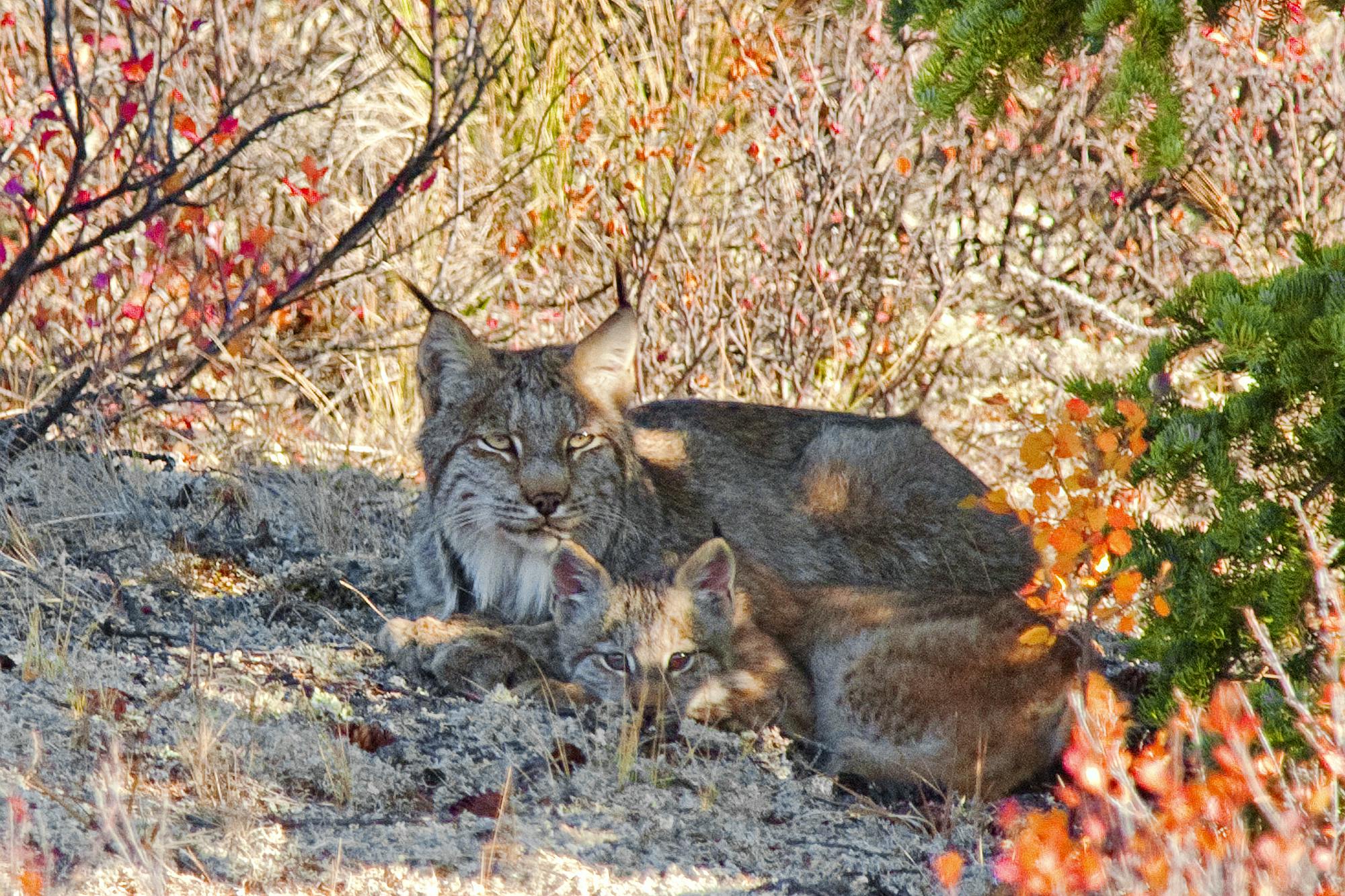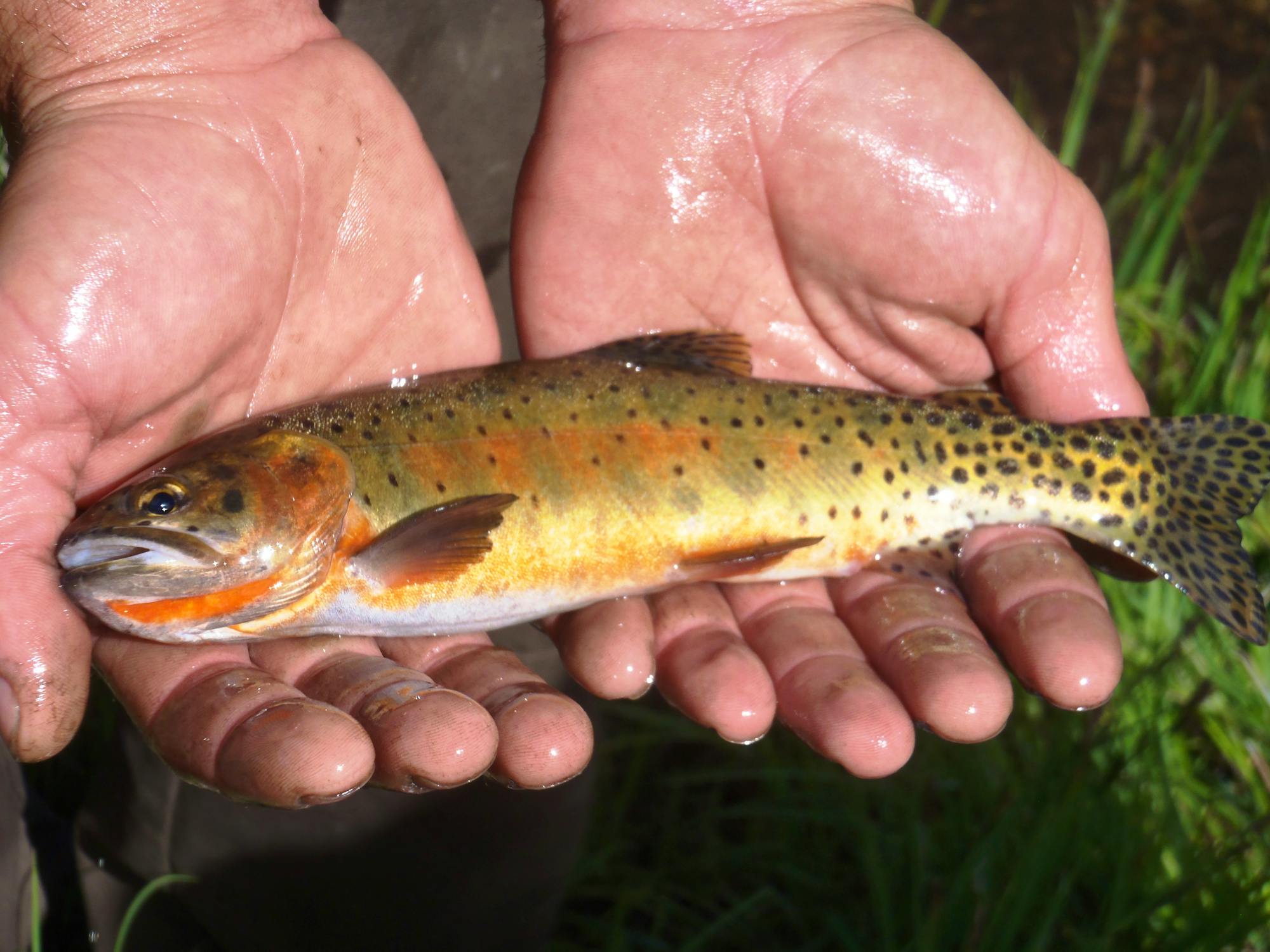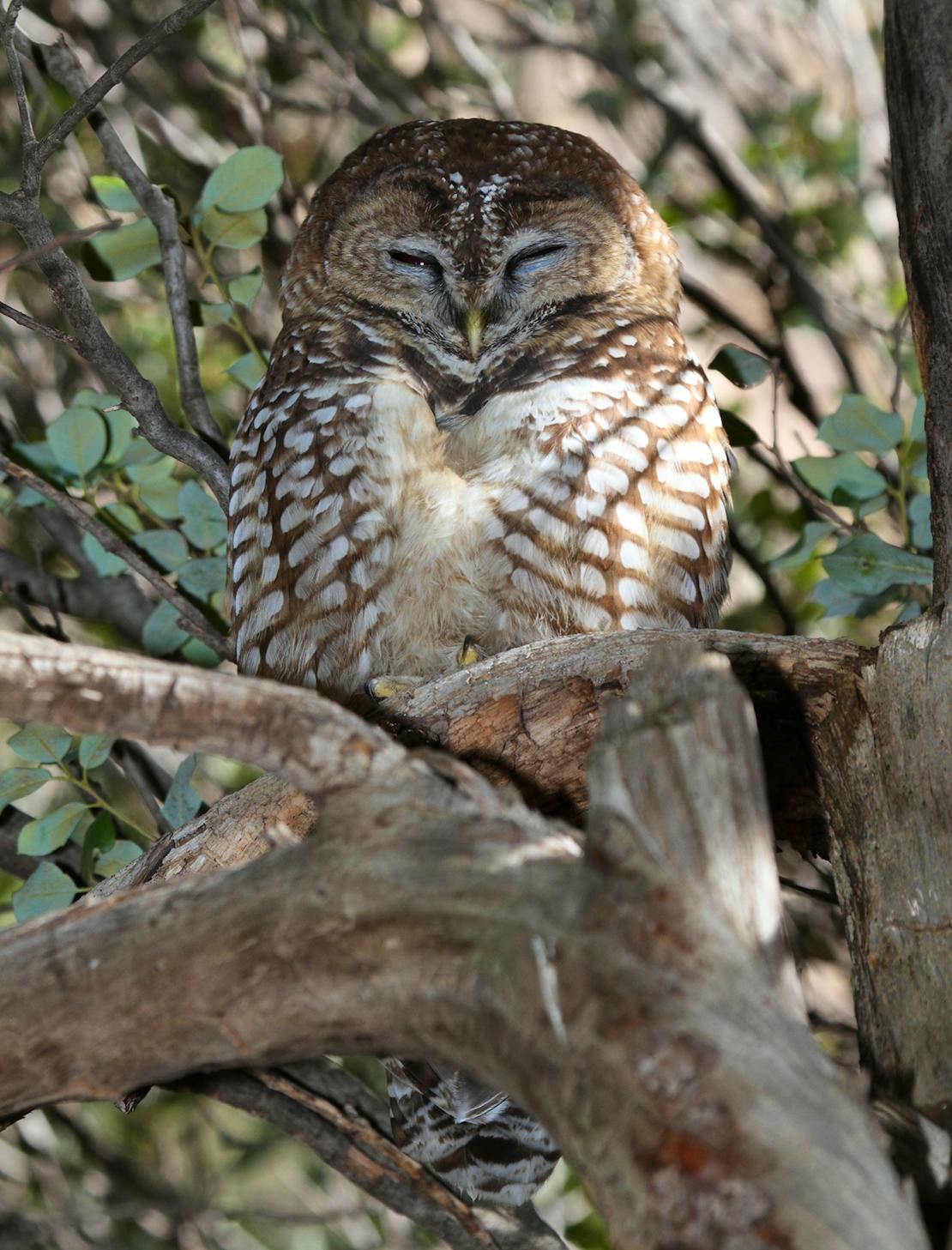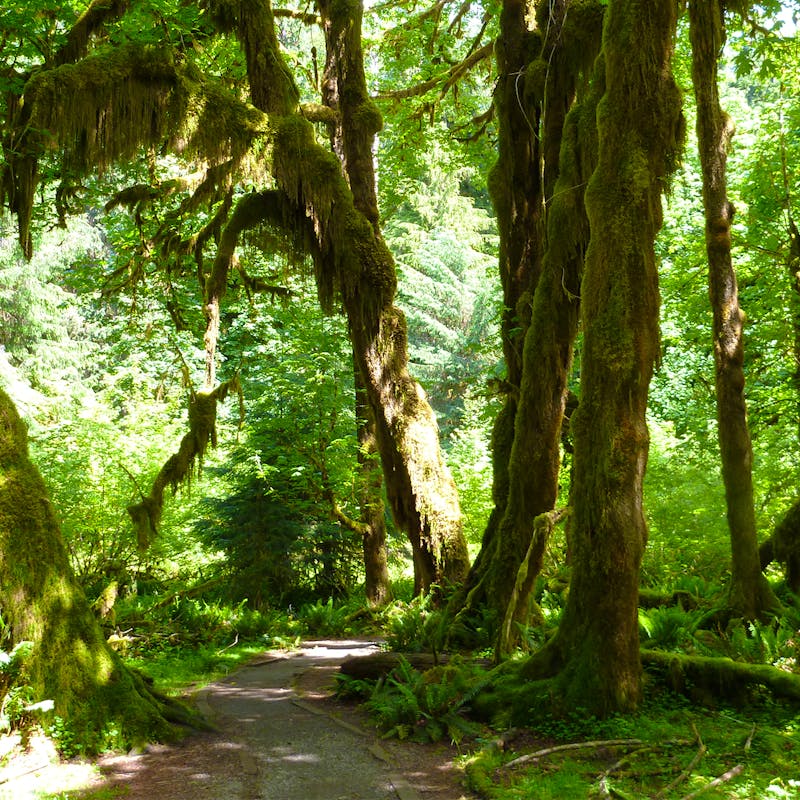A little owl found his tree transported 170 miles away from home this week after the Norway spruce donated for this year’s Rockefeller Center Christmas tree was cut down in Oneonta, NY. The northern saw-whet owl made the trip with her tree all the way to the middle of New York City, wrapped up tight along with the branches. Since they’re so small, saw-whet owls often roost close to tree trunks and stay as still as possible to avoid being snatched up by anything bigger. One of the workers setting up the tree found the owl and brought her to the Ravensbeard Wildlife Center, where she is recuperating before being released back into the wild.
The owl, named Rockefeller, is a reminder that trees don’t just make a forest. Forests, and the many different trees that define them, provide essential habitat that wildlife rely upon for survival. Our national forests, for example, are home to more than 3,000 species of wildlife. Birds like saw-whet owls are often found roosting or hunting from trees, and our national forests and their trees are imperative for the survival of all kinds of imperiled species – from the Canada lynx and the Rio Grande cutthroat trout to the Prince of Wales flying squirrel and the marbled murrelet.



Defenders works across the country to protect forested land and its inhabitants, with a focus on national forests managed by the U.S. Forest Service. We aim to improve habitat conditions and reduce threats to endangered, threatened and other sensitive species in national forests and beyond by leveraging conservation provisions in laws and regulations to protect species across the nearly 200 million acres of U.S. national forests. Our forest conservation experts engage in forest conservation planning and policy development, and fight threats to the existing legal and regulatory framework that is critical to forest and species conservation. We recently completed an analysis that showed a Trump administration proposal to ramp up oil and gas development on national forests could thwart the conservation and recovery of more than 100 species listed under the Endangered Species Act (ESA). More than 16,000 of our members helped us push back on that proposal through public comments.
Unfortunately, on Thursday, just days after Rockefeller’s journey to New York City, the Trump administration finalized a rule that makes it easier for industry to pursue logging and other harmful extractive activities within America’s treasured national forests. The final U.S. Forest Service National Environmental Policy Act (NEPA) regulations limit public engagement and environmental review of Forest Service land management decisions and roll back longstanding protocols that the administration considers barriers to accelerated timber production.
Another species of owl, the Southwest’s Mexican spotted owl, which is listed as threatened under the ESA, is a homebody: One individual owl’s home range is on average less than four square miles. Under the new rule, the Forest Service can log large blocks of national forest land – up to 4.3 square miles – with cursory environmental review. Authorizing large logging projects without taking a careful look at the environmental consequences could have devastating implications for imperiled wildlife, including the Mexican spotted owl.
Rollbacks to longstanding environmental protections aren’t the only threats to forests and the wildlife that rely on them. Climate change, and all its accompanying drought, wildfires, seasonal timing and other impacts, is throwing our forested ecosystems off balance and increasing destruction through logging, grazing, oil and gas drilling and other extractive uses is further fracturing habitats.
In Alaska, the Tongass National Forest is the largest intact temperate rainforest reserve on the continent, but it is also under constant attack. The bears, migratory birds, salmon, wolves, Sitka black-tailed deer, mountain goats and bald eagles that live there are in constant danger of losing their home because these trees that are felled are more than just fuel or building material. Unsustainable forestry targeting the largest trees, road construction and the efforts to repeal or weaken the national Roadless Area Conservation Rule all perpetuate the destruction of precious fish and wildlife habitat at taxpayer expense.
Forests are often thought of as renewable because new trees can be planted to replace those lost. But the reality is, the slow growth of trees takes a long time to replenish healthy habitat. If the entire home range of a pair of owls is clear-cut, those owls won’t be around long enough to see their patch of forest grow back. We are clear-cutting and paving through forests at dangerous rates, made worse by the removal of “barriers” to such development by the Trump administration. At a critical time when we should be protecting at least 30% of our lands and waters by 2030, this continued destruction leads to fragmented habitat, a loss of wildlife corridors and animals stranded without a place to call home.
Defenders is fighting back against these detrimental rules and industries, taking our case to court when we need, making sure sound conservation science is incorporated into forest planning at every stage, and advocating for the protection of high-quality habitat. Together, we can make a difference for wildlife – give to help us protect homes for owls like Rockefeller and all imperiled species that rely on forests for survival.
Update: On Tuesday, November 24, the Ravensbeard Wildlife Center, released Rockefeller back into the wild after she was given a clean bill of health!











